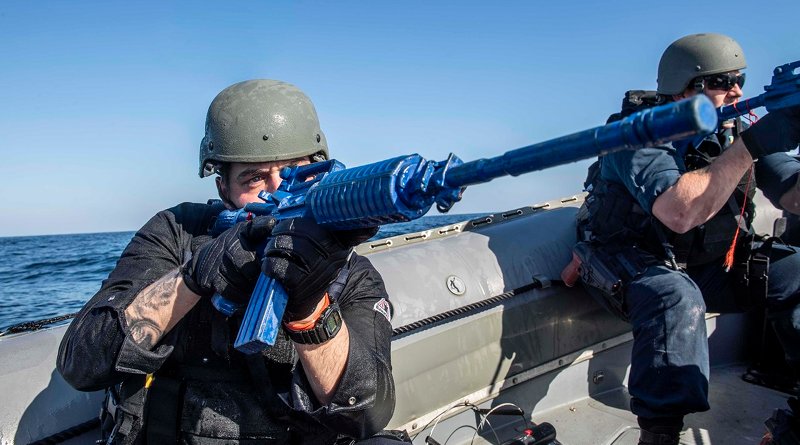Freedom Of Navigation In South China Sea Critical To Prosperity, Says Indo-Pacific Commander
By DoD News
By David Vergun
Navy Adm. Philip S. Davidson, commander, U.S. Indo-Pacific Command, spoke Saturday at the Halifax International Security Forum, in Halifax, Nova Scotia, Canada.
Freedom of navigation by air and by sea is important globally, including in the South China Sea, where trillions of dollars in commerce transit each year, he said.
However, over the years, China has been militarizing islands in the South China Sea and has increased its capability there, he said.
Now, China wants to come up with a code of conduct between it and the Association of Southeast Asian Nations for operating in those waters, he said.
ASEAN is a group of nations in Southeast Asia that promotes economic, political, and security cooperation among its 10 members: Brunei, Cambodia, Indonesia, Laos, Malaysia, Myanmar, the Philippines, Singapore, Thailand and Vietnam.
Davidson urged ASEAN nations to ensure such an agreement, if reached, does not restrict their freedom of navigation and limit their ability to operate there for commerce and exercises.
The admiral said ASEAN nations have been assured that the U.S. and its allies and partners will support their right of freedom of navigation.
Canada, New Zealand, Australia, Japan and India have all sailed through those waters and participated in military exercises there, he noted.
Also, the U.S. has increased its operations in the South China Sea, Davidson said. Several exercises were conducted there in September and October and two freedom of navigation exercises were conducted there in the last week or two.
As well, navigation in those waters will pick up as the U.S. continues to rotate its forces through Singapore and projects air and sea power from bases in Japan, he added.
Davidson then discussed a wider threat from China.
China is expanding its military presence beyond the South China Sea, Davidson said. They are now operating globally, to include areas around South America, Europe and Africa.
There have been more of these global Chinese naval deployments in the last 30 months than in the last 30 years, he said.
They are also developing and fielding advanced ballistic missiles and hypersonics.
In response, the U.S. is ramping up its missile defense systems and is developing long-range precision fires as a deterrence measure, he said.
Davidson concluded that ”freedom and support of the international order is worth defending.”

